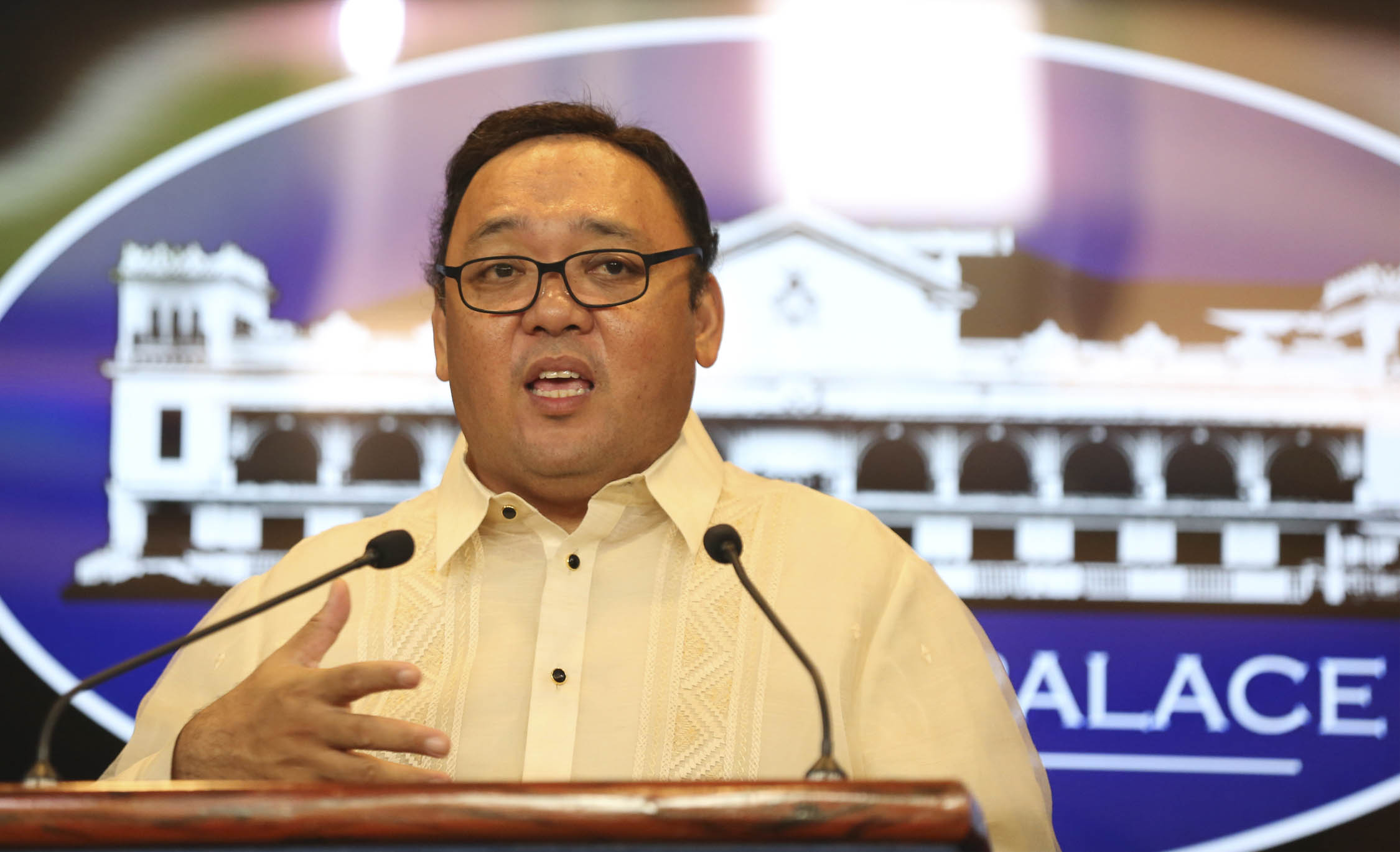Malacañang on Tuesday said postponing the 2019 elections should be done only if a new Constitution would be drafted and ratified by the people before the polls. Otherwise, it said, there is no reason to stop the scheduled balloting.
At a Cabinet meeting on Monday, President Rodrigo Duterte “reiterated he is against no-el,” or “no-election,” said presidential spokesperson Harry Roque.
“He wants to push through with the elections in 2019 and has committed to give us the most honest and the most credible elections in 2019,” Roque said.
Mr. Duterte’s allies have floated the idea of postponing the elections next year and extending the terms of elected officials as part of the transition to a federal government.
If the new Constitution has been ratified, then there will be no need to hold the 2019 elections, Roque said.
“As I said, if they are able to amend the Constitution and have the people ratify it before 2019, that’s the only possibility of the postponement of the elections,” he added. “But unless the Constitution is actually ratified by the people and the President calling for the transitory provisions, the elections will push through.”
The top leaders of the Senate and the House of Representatives have agreed to convene a constituent assembly (Con-ass) to amend the 1987 Constitution for a shift to a federal form of government.
House discussions begin
In the House, the committee on constitutional amendments will begin discussions this month on a draft of a new Constitution based on federalism models earlier presented to the panel, according to a House leader.
“[T]he subcommittees of the House committee on constitutional amendments are scheduled to submit their output to the mother committee this January,” Deputy Speaker Fredenil Castro said.
Castro, vice chair of the constitutional amendments committee, said the “output,” or the draft federal Constitution, should be debated and put to a vote by the House panel.
“Then, the House will have to wait for the action of the Senate on the joint resolution calling the House and the Senate to convene as a Con-ass,” he said, referring to Concurrent Resolution No. 9.
“The decision of the Senate, whether negative or positive, will dictate the next procedure to be followed by the House,” Castro told the Inquirer.
Concurrent Resolution No. 9 seeks “to constitute the Congress of the Philippines as a Con-ass for the purpose of proposing amendments to, or revision of, the 1987 Constitution.”
Under a Con-ass, the Senate and the House, acting as one body, will introduce and approve changes to the Charter by an absolute three-fourths vote and the approved changes will be submitted to a national referendum.
The House began plenary debates on Concurrent Resolution No. 9 on Dec. 13, while the Senate version was expected to be filed this week.
Both Speaker Pantaleon Alvarez and Senate President Aquilino Pimentel III have agreed publicly to adopt the measure.
Two proposed drafts
While the mode of Charter change is under discussion, the House constitutional amendments committee has begun consolidating two proposed drafts of a new Constitution that will later be submitted to a Con-ass, once it is convened.
The first is Resolution of Both Houses No. 8 containing an 83-page draft proposal of the new Charter filed by ABS Rep. Eugene Michael de Vera and Pampanga Rep. Aurelio Gonzales Jr.
The second is a draft Charter prepared by the PDP-Laban Federalism Institute from a study group led by the institute’s executive director Jonathan Malaya and University of Santo Tomas professor Edmund Tayao.
Based on these two models, the House panel formed four technical working groups to handle specific areas in the drafting of the new “Philippine Federal Constitution.”
